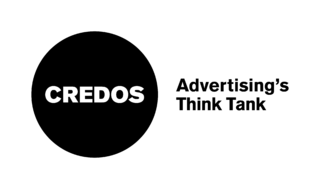Related Research Articles

The Children's Online Privacy Protection Act of 1998 (COPPA) is a United States federal law, located at 15 U.S.C. §§ 6501–6506.
The Motion Picture Association (MPA) film rating system is used in the United States and its territories to rate a film's suitability for certain audiences based on its content. The MPA rating system is a voluntary scheme that is not enforced by law; films can be exhibited without a rating, although certain theaters refuse to exhibit non-rated or NC-17 rated films. Non-members of MPA may also submit films for rating. Other media, such as television programs, music and video games, are rated by other entities such as the TV Parental Guidelines, the RIAA and the ESRB, respectively.
A motion picture content rating system is an organization designated to classify films based on their suitability for audiences due to their treatment of issues such as sex, violence, or substance abuse; their use of profanity; or other matters typically deemed unsuitable for children or adolescents. Most countries have some form of rating system that issues determinations variously known as certifications, classifications, certificates, or ratings. Age recommendations, of either an advisory or restrictive capacity, are often applied in lieu of censorship; in some jurisdictions movie theaters may have a legal obligation to enforce restrictive ratings.
Next Digital Limited, previously known as Next Media Limited, founded by Jimmy Lai, has 4,041 employees and is the largest-listed media company in Hong Kong.

Parental controls are features which may be included in digital television services, computer and video games, mobile devices and software that allow parents to restrict the access of content to their children. These controls were created to assist parents in their ability to restrict certain content viewable by their children. This may be content they deem inappropriate for their age, maturity level or feel is aimed more at an adult audience. Parental controls fall into roughly four categories: content filters, which limit access to age inappropriate content; usage controls, which constrain the usage of these devices such as placing time-limits on usage or forbidding certain types of usage; computer usage management tools, which enforces the use of certain software; and monitoring, which can track location and activity when using the devices.
The TV parental guidelines are a television content rating system in the United States that was first proposed on December 19, 1996, by the United States Congress, the television industry and the Federal Communications Commission (FCC), and went into effect by January 1, 1997, on most major broadcast and cable networks in response to public concerns about increasingly explicit sexual content, graphic violence and strong profanity in television programs. It was established as a voluntary-participation system, with ratings to be determined by the individually participating broadcast and cable networks.
Sexualization is to make something sexual in character or quality or to become aware of sexuality, especially in relation to men and women. Sexualization is linked to sexual objectification. According to the American Psychological Association, sexualization occurs when "individuals are regarded as sex objects and evaluated in terms of their physical characteristics and sexiness." "In study after study, findings have indicated that women more often than men are portrayed in a sexual manner and are objectified. In addition, a narrow standard of physical beauty is heavily emphasized. These are the models of femininity presented for young girls to study and emulate." Women who embrace their sexual desires are considered to be sexy and attractive to men who want nothing more than to have a woman as a sex toy. In the eyes of men, women that practice this behavior serve the pure purpose of providing satisfaction and showcasing their human nature. According to the Media Education Foundation's, Killing Us Softly 4: Advertising's Image of Women, the sexualization of girls in media and the ways women are portrayed in the dominant culture are detrimental to the development of young girls as they are developing their identities and understanding themselves as sexual beings.

And Tango Makes Three is a children's book written by Peter Parnell and Justin Richardson and illustrated by Henry Cole which was published in 2005. The book tells the story of two male penguins, Roy and Silo, who create a family together. With the help of the zookeeper, Mr. Gramsay, Roy and Silo are given an egg which they help hatch. The female chick, that completes their family, is consequently named "Tango" by the zookeepers. The book was based on the true story of Roy and Silo, two male chinstrap penguins who fell in love in New York's Central Park Zoo.

Food marketing brings together the food producer and the consumer through a chain of marketing activities.
Internet censorship in the United Kingdom is conducted under a variety of laws, judicial processes, administrative regulations and voluntary arrangements. It is achieved by blocking access to sites as well as the use of laws that criminalise publication or possession of certain types of material. These include English defamation law, the Copyright law of the United Kingdom, regulations against incitement to terrorism and child pornography.
Slow parenting is a parenting style in which few activities are organised for children. Instead, they are allowed to explore the world at their own pace. It is a response to concerted cultivation and the widespread trend for parents to schedule activities and classes after school; to solve problems on behalf of the children, and to buy services from commercial suppliers rather than letting nature take its course.

The Australian Classification Board is an Australian Government statutory body responsible for the classification and censorship of films, video games and publications for exhibition, sale or hire in Australia. The ACB was established in 1970 and was once part of the Office of Film and Literature Classification (OFLC), which was dissolved in 2006. The Department of Communications and the Arts now provides administrative support to the ACB and decisions made by the ACB may be reviewed by the Australian Classification Review Board. The ACB now operates under the Commonwealth Classification Act 1995.

Credos is an advertising think-tank established in early 2010 by the Advertising Association, as part of their mission to re-build public trust in advertising and maintain the freedom to advertise responsibly in the UK. It is funded by the advertising industry and overseen by an advisory board to assure the quality of its work. Credos' mission is to 'understand advertising': its role, how it works, how it is perceived and its value to UK society and the economy.
The UK Council for Child Internet Safety (UKCCIS) was set up in 2008 under the Brown Government charged with bringing together government departments, law enforcement agencies, academia, private industry and third-sector representatives such as charities and voluntary groups to collaborate on strategies to ensure child internet safety. It is a group made up of more than 200 constituent organisations with a board chaired by ministers. It collates internet safety research, conducts its own consultations, gives advice to industry providers and publishes a code of practice. The remit of the Council began with the Byron Review and the group has subsequently drawn on diverse sources including the Bailey Review and the work of Professor Sonia Livingstone.
The Family and Parenting Institute is an independent charity that exists to make the UK a better place for families and children. It works with charities, businesses and public services to offer practical help to families. Its campaigns and research work focuses on building a "family friendly" society by offering insights into current and future family life. It runs the Family Friendly scheme which aims to help public and private organisations to better understand diverse families and meet their needs. The Family and Parenting Institute merged with the Daycare Trust in January 2013 and is now called the Family and Childcare Trust.
The Lamb Inquiry (2009) was established as part of the UK government’s response to the House of Commons Education and Skills Committee Report Special Educational Needs: Assessment and Funding. The enquiry was led by Brian Lamb, the chair of the Special Educational Consortium (SEC), who was tasked by the Department of Children’s, Schools, and Families (DCSF) to explore a range of ways in which parental confidence in the Special Educational Needs (SEN) assessment process might be enhanced.
The precise number of websites blocked in the United Kingdom is unknown. Blocking techniques vary from one Internet service provider (ISP) to another with some sites or specific URLs blocked by some ISPs and not others. Websites and services are blocked using a combination of data feeds from private content-control technology companies, government agencies, NGOs, court orders in conjunction with the service administrators who may or may not have the power to unblock, additionally block, appeal or recategorise blocked content.
Emma Rush is a lecturer in philosophy and ethics at Charles Sturt University Faculty of Arts, School of Humanities and Social Sciences, notable for her work on sexualisation of children.
Maddy Coy is the deputy director of the Child and Woman Abuse Studies Unit (CWASU), London Metropolitan University and has collaborated with the End Violence Against Women Coalition (EVAW).

YouTube Kids is an American online video platform for children, developed by YouTube. The website provides a version of the service-oriented towards children, with curated selections of content, parental control features, and filtering of videos deemed inappropriate viewing by kids 12 and under.
References
- ↑ "Bye Buy Childhood". Mothers' Union.
- ↑ Reg Bailey (6 June 2011). "Letting Children Be Children" (PDF). Department for Education. Retrieved 26 November 2013.
- ↑ Meg Barker. "Sexualisation and gender stereotyping? One response to the Bailey review". The Open University: Society Matters. Archived from the original on 2 December 2013. Retrieved 26 November 2013.
- ↑ Holly Dustin and Jane Fae (6 June 2011). "Sexualisation and the Bailey review". The Guardian. Retrieved 26 November 2011.
- ↑ "Co-op threatens to ban 'harmful' lads' mags in censorship ultimatum". The Daily Express. 29 July 2013. Retrieved 26 November 2013.
- ↑ "Supermarkets to hide tabloid front pages because of sexual content concerns". BBC News. 22 November 2014. Retrieved 24 November 2014.